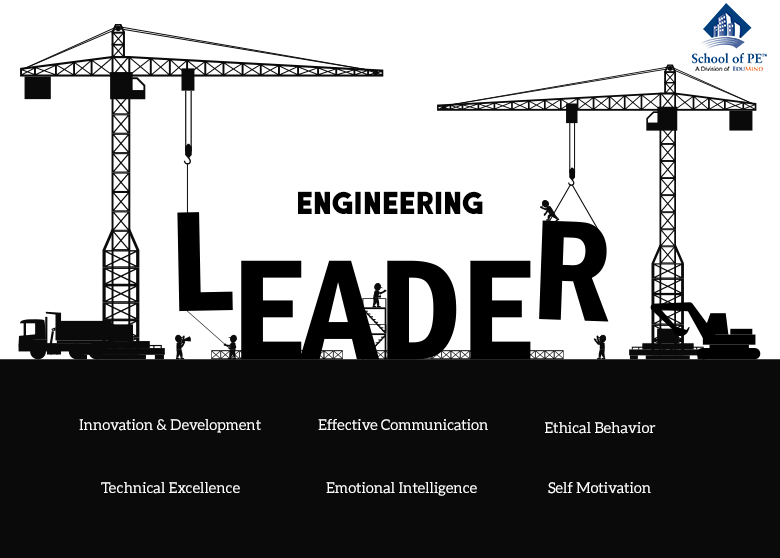Engineering is a very challenging technical field that requires ongoing complex decisions. In the near future, these challenges will become even greater and require the need for agility through practical problem solving, innovation, and sustainability. Even those projects that are simple in scope will involve finding new technical approaches and creative ways to achieve results. This will require engineers to be more than just technical and analytical, but also able to navigate through the social, political, economic, cultural, environmental, and ethical aspects of projects. With that comes the need for competent engineering leaders.
First, there is a distinct contrast between managers and leaders. Managers are responsible for tangible resources and tend to be more focused on dealing with everyday issues through planning, designing, executing, and delivery of projects. Alternately, leaders involve proactive innovation and development through empowering their people to deliver projects with available resources. Leaders seek ways to improve upon what’s available and what’s assumed. One of the biggest attributes of a leader is effective communication.
Effective communication includes active listening or listening with the intent to understand and observing the speaker’s behavior and body language. This helps the listener gain a more accurate understanding of what the speaker is communicating. Nonverbal communication is another attribute of effective communication. It is important to be attentive to gestures, facial expressions, tone of voice, eye contact, and postures. Asking questions is also a part of effective communication and is a sign of engagement. It also ensures that there is mutual understanding during the exchange. Building trust, being empathetic, and providing feedback are also ways to increase effective communication as a leader.
Leaders must also be models of ethical behavior. Core behaviors such as integrity, accountability, and responsibility are essential to effective leadership and, if used correctly, can help motivate teammates. Engineering leaders must also have a desire to continue developing interpersonal skills. This means that leaders must have the ability to explain and summarize complex technical topics to nontechnical audiences while exhibiting intuition and empathy.
Engineers must also embody the qualities of good, effective leaders, which give their leadership direction and momentum, resulting in motivated action and execution. Good leaders exhibit emotional intelligence, self-awareness, confidence, and capability, and are self-motivated. Most engineers exhibit these qualities; however, the qualities of an effective leader are even more extensive. Effective leaders are action oriented; operate with a vision or purpose, focus on delivering benefits to meet or exceed expectations, focus on building and developing teams, constantly evaluate the performance of themselves and others, anticipate the needs of the team, and be agile and flexible with regard to projects and organizational changes.
Overall, effective engineering leaders combine technical excellence with the ability to motivate others and use these efforts along with business savvy to execute projects. The effective engineering leader is action oriented and instills this mindset into the team. Effective leaders are able to achieve goals with their teams set by stakeholders, organizations, or self-initiated. Success! Now check your email to confirm your subscription.






